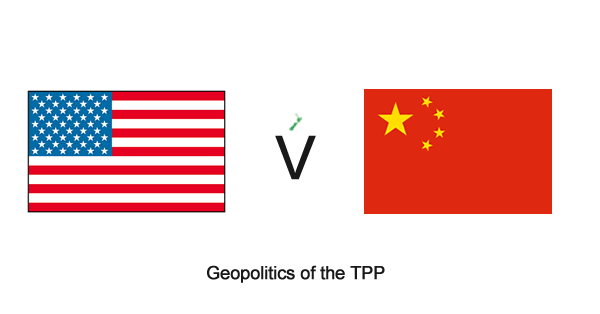As we New Zealanders wring our hands, concerned over the loss of sovereignty that the TPP (Trans Pacific Trade and Investment Partnership) might imply for us, we should at least spare a thought for the bigger game of which that agreement is only part. If we appreciate that, it might at least give us a better feel for what the real trade-offs are. And they are far larger than issues around the power of global corporations to shape our public policy.
There can be little doubt that the US has embarked on a policy of containment of China – and that the TPPA is part of that initiative. The traditional belief underlying globalisation has been that it would lead to a convergence of values between so-called “Communist China” and the West. However, the reality is that over the almost 50 years since President Nixon proclaimed that the US had to look at engagement as the way to encourage liberalisation in China, that vision has struck its limits. The move by America to open its markets to Chinese products and the concomitant emergence of China as the largest creditor of US government borrowing, has played an enormous part in underpinning global growth over the last 15 years.
But while trade has expanded and enormously, there is no evidence of China’s convergence to the values of a capitalist democracy. Indeed under President Xi Xinping it’s quite the opposite, there has been a severe clampdown internally on free speech and criticism of the Communist Party, and the expansionism of China in the South China Seas has sent shivers through the rest of Asia. Add to that China’s efforts through initiatives such as the Asian Infrastructure Investment Bank to draw more nations into its economic and financial orbit, and it’s not hard to understand why the US has called “time” and begun a series of moves to contain China.
Those moves include military steps such as beefing up its presence in Asia and cutting off military technology transfer to China, and economic such as the TPP and TTIP. Even the US business sector has reversed its erstwhile enthusiasm for trade with China, which saw it lobby China into the WTO in 2001.
The change in US rhetoric on China is dramatic. President Obama, referring to the TPP and his efforts to fast-track it through Congress, said in April,
“If we don’t write the rules, China will write the rules out in that region”
So let’s come back to little New Zealand, caught up in this geopolitical play. When it comes to the TPP we certainly want trade in the region to be more free. What wouldn’t we give to have meaningful free access for our agricultural products to Japan and the US? But we can’t go to the table and expect to get anything for nothing – neither administration needs us. So the issue is what are we prepared to give up for the employment and income growth more free trade would confer?
One extreme view is nothing. That protectionist outlook is worthless and deserves to remain at the Far Left fringe of New Zealand politics – it gets far too much press in the debate here. But on the other hand the thought of a convergence of our taxation, regulatory and legal protections with those of the lowest common denominator in the Asia-Pacific region, is also repugnant. Even convergence to the US norms isn’t acceptable. We have a small, very small domestic market and simply haven’t got the economies of scale to let competition rule everywhere. What happens too often here is that the free market results in market concentration, one or two dominant players who then monopoly price. This is the rationale that underpins Pharmac for example, and could be applied in several other of our so-called domestic “markets”.
So the secret negotiations (and we covered why they have to be in secret in an earlier blog) need to result in an arrangement that respects the limits to open slather in our domestic markets.
But even more importantly, when New Zealanders are considering the pros and cons of the TPP, we need to answer an even more simple question. Who would you rather have as the international tour de force in this region, China or the US? It’s a no brainer isn’t it? I’ll take democracy any day.
This puts the TPP debate in perspective. We want greater market access, we know we have to give something up, and we don’t want the authoritarian, non-democratic Chinese regime writing the rules. These are the terms of reference for our negotiation with the US in the TPP.

